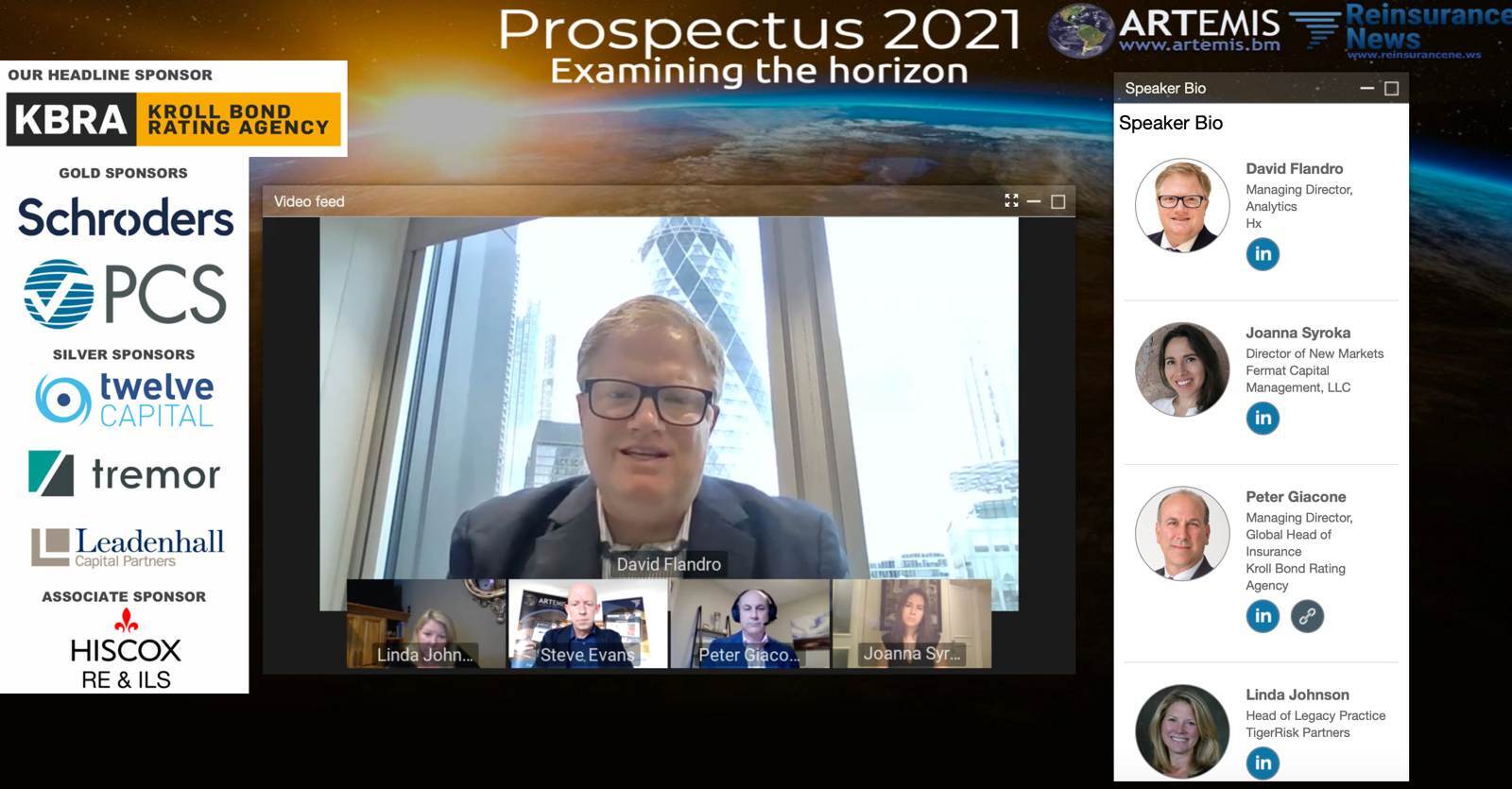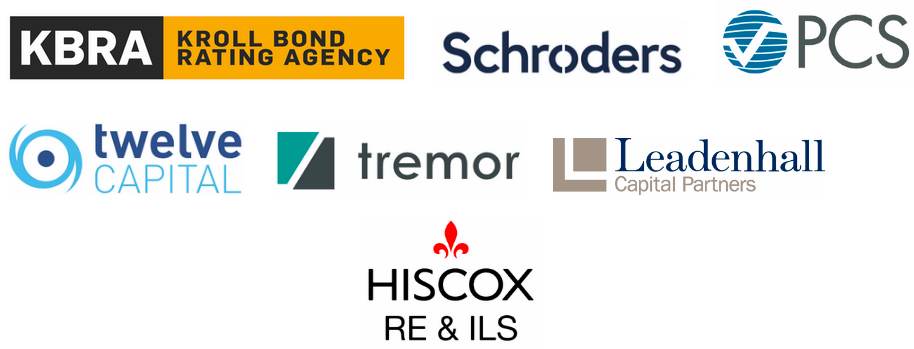During the opening panel of the Prospectus 2021 online conference, David Flandro, Managing Director at Hyperion X Analytics argued that the private market is fully capable of handling pandemic risk, but not the accompanying government actions.
 Prospectus 2021, the new annual conference by Reinsurance News and Artemis, kicked off yesterday with a discussion about the COVID-19 outlook for the re/insurance & ILS industry.
Prospectus 2021, the new annual conference by Reinsurance News and Artemis, kicked off yesterday with a discussion about the COVID-19 outlook for the re/insurance & ILS industry.
Asked whether he felt the systemic nature of pandemic risk was inherently uninsurable, Flandro said he was confident that the industry could innovate new products to meet the challenges of non-damage business interruption and event cancellation risks.
However, he added that the market will run into trouble with modelling if pandemic risk shifts away from the epidemiological and towards the response of individual governments, as has been seen throughout the COVID-19 crisis.
“I don’t believe that pandemic risk is uninsurable,” said Flandro. “But one big caveat to that is if the risk is just based on government action, then that is impossible to insure. And if that’s going to be the primary driver of the peril, then unfortunately there would have to be some sort of non-commercial public backstop.”
Running until November 18th, Prospectus 2021 brings together our two publications to address issues relevant to both the traditional and alternative reinsurance capital markets at an important time for the industry.
The conference brings together 23 industry experts for a series of keynote speeches and panel discussions, sponsored by Kroll Bond Rating Agency (KBRA).
Flandro was joined on the first panel by Peter Giacone, Managing Director, Global Head of Insurance at KBRA, Joanna Syroka, Director of New Markets at Fermat Capital Management, and Linda Johnson, Head of Legacy Practice at TigerRisk Partners.
Giacone largely agreed with the point made by Flandro, arguing that there is nothing fundamentally uninsurable about pandemic provided the industry is able to quantify the risk and separate it into manageable parts.
“The notion that the insurance industry could cover every possible thing that could ever happen is of course nonsensical,” the KBRA executive noted.
“So given the pervasive impacts of the pandemic from day one and the lockdowns and everything else, it was very easy to say we can’t possibly share this. But as you step back and wait for the data to start coming in, you now have information that allows you to calibrate that risk.”
“I think it comes down to tailoring coverage and coming up with ways to put boundaries around that risk and quantifying it,” Giacone concluded. “I think that that’s eminently doable and it’s something we’re going to see a ball over the next 18 to 24 months.”
In keeping with the theme of the conference, the panel also explored how ILS and alternative capital could play a role in helping the industry to get a handle on pandemic risk.
In particular, Syroka pointed to the landmark pandemic cat bond by the World Bank, which she says provides an example of how this risk can be modelled, quantified, indexed and ultimately transferred.
“Obviously with hindsight, we could always think of things that can be improved in such an ambitious and complex transaction such as this, but the bank should be applauded for pioneering such very important technology,” she said.
“They’ve given us a loop group blueprint of how things can be evolved further, and I think once the dust settled we will see that technology being used again.”
The success of the World Bank bond is a clear sign that there is appetite for pandemic risk with the alternative capital markets if it is modelled and structured well, Syroka argues.
“I can see a big role for reinsurance and ILS on the back end to help governments manage this risk,” she told the panellists. “Not least to provide a pricing signal – a very important element for policy makers that are designing programs.”
As the final speaker, Johnson agreed that the opportunity for the re/insurance industry right now is in exploring how to “parse out” pandemic risk with innovative new solutions.
But this creativity can already be seen in many sectors, she noted, such as entertainment, where the capital markets have enabled major projects to remain in production despite the financial and operational uncertainty of the pandemic environment.
“I think the industry has done a great job in getting the entertainment market up and running by providing insurance,” Johnson said. “If it wasn’t for the different entertainment bonds and film minds bonds out there, a lot of production would not be in process right now.”
“I think we are going to continue to innovate and that will be the secret going forward,” she added. “Of course, not every dollar of every risk will be a private solution, and partnering with the public sector is critical. But I do believe that we have the tools and the technology, as well as the intelligence to keep the pandemic controlled with insurance solutions.”
To watch every session on-demand please visit the Prospectus 2021 website.
Thank you to our Prospectus 2021 sponsors:
Please contact us for more details on sponsorship opportunities at future events.



